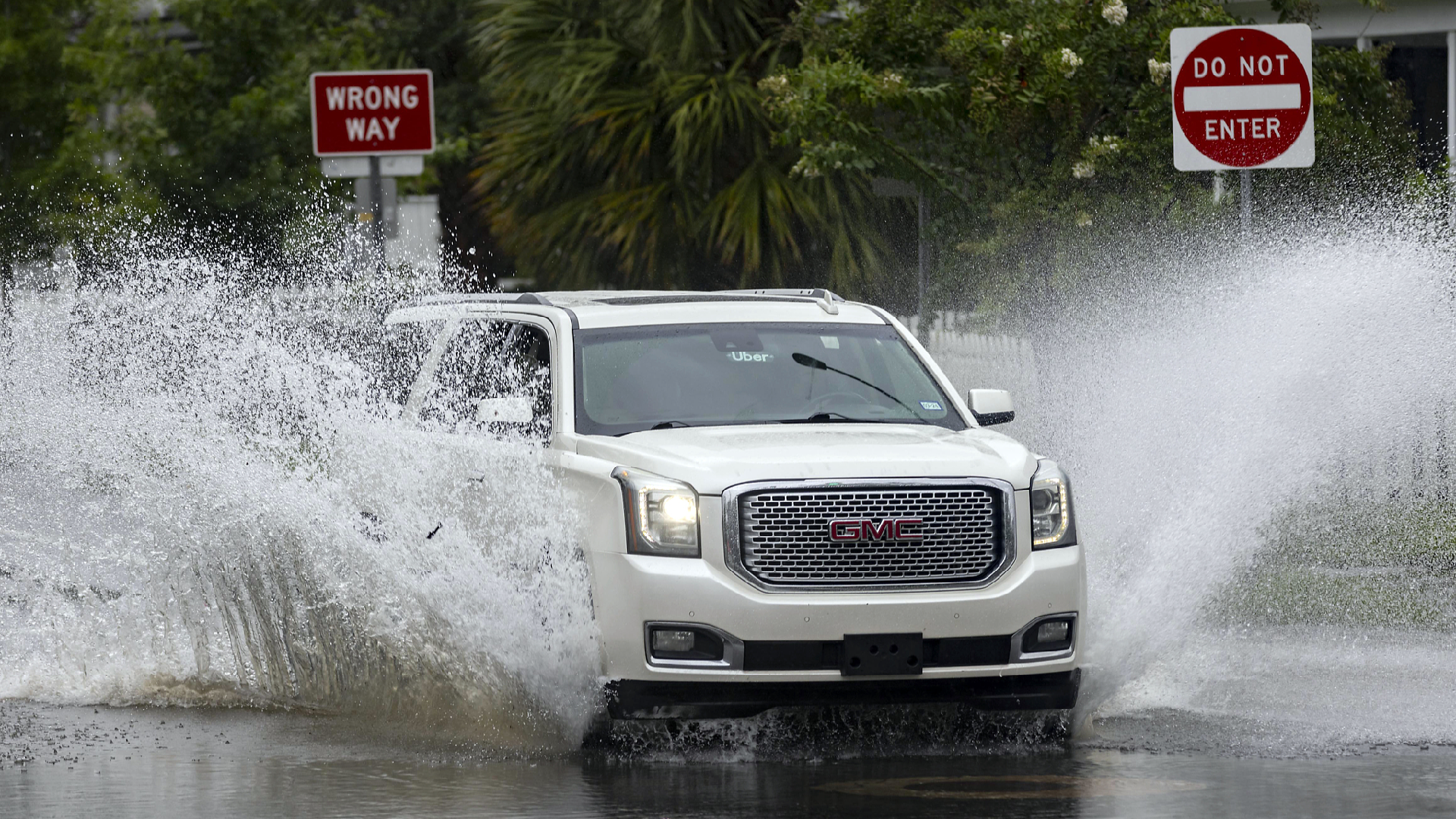Tropical Storm Debby Soaks Northern Florida
Tropical Storm Debby inundated northern Florida on Monday, resulting in several fatalities as the former hurricane moved toward Georgia and the Carolinas. The storm threatened to bring a week of heavy rainfall and flooding throughout the area.

Originally making its way onto Florida's Gulf Coast near Steinhatchee, around 115 kilometers southeast of Tallahassee, as a Category 1 hurricane, Debby struck at about 7 a.m., announced by the National Hurricane Center. At landfall in Florida’s Big Bend area, Debby bore hurricane-force winds of up to 130 kilometers per hour, although these winds weakened as the storm advanced inland.
Casualties from Debby included two young teenagers in Levy County, crushed by fallen trees, as confirmed by local authorities. Another victim was a 19-year-old man in the vicinity of Valdosta, Georgia, who died when a tree toppled onto a porch, according to police reports. Additional deaths include a truck driver who veered into the Tampa Bypass Canal after losing control on Interstate 75, and a woman with her young son in Dixie County, who were both killed in a vehicle accident during the stormy conditions.
Power outages impacted around 150,000 customers in Florida by Monday evening, a reduction from earlier figures of 350,000, based on data from Poweroutage.us. Furthermore, air travel disruptions included numerous cancellations of flights to and from Florida airports.
Police in Sarasota, Florida, reported over 500 rescues from flooding on Monday, and another 180 were saved in Manatee County according to local officials.
The storm was positioned near the Florida-Georgia border by late Monday, moving slowly northeastward with sustained winds of 75 kilometers per hour, per updates from the hurricane center. The storm is predicted to travel through Georgia, reaching the Atlantic Ocean by Tuesday night, then gain strength again for another likely landfall near Charleston, South Carolina.
Significant rainfall, potentially reaching up to 76 centimeters by Friday, is anticipated along the Atlantic coast, prompting the governors of Georgia, South Carolina, and North Carolina to declare states of emergency.
"This is going to be an event that is going to be probably here for the next five to seven days, maybe as long as 10 days, depending on how much rainfall we get," Kevin Guthrie, executive director of the Florida Division of Emergency Management, stated regarding the persistent storm conditions.
Both Georgia and South Carolina are preparing for significant floods. "It may be the most water we've seen in a long while," remarked South Carolina Governor Henry McMaster. "There may be flooding in areas that never flooded in the past."
Savannah's Mayor Van Johnson warned of a highly unusual rainfall event for the city, describing it as a "once in a thousand year" occurrence.
Debby, now a tropical storm, mirrors aspects of Hurricane Harvey, which caused extensive damage and flooding in Texas in August 2017.
Experts link the rise in ocean temperatures and the increasing severity of storms to climate change, driven by human activities such as the burning of fossil fuels.
The region last faced a major hurricane with Hurricane Idalia in August 2023, which caused significant damage. In contrast, Florida Governor Ron DeSantis noted that the impact of Debby has been relatively "modest" compared to Idalia.
Looking ahead, the 2024 Atlantic hurricane season is expected to be particularly active, potentially surpassing the record set in 2005.
Anna Muller for TROIB News
Find more stories on the environment and climate change on TROIB/Planet Health












